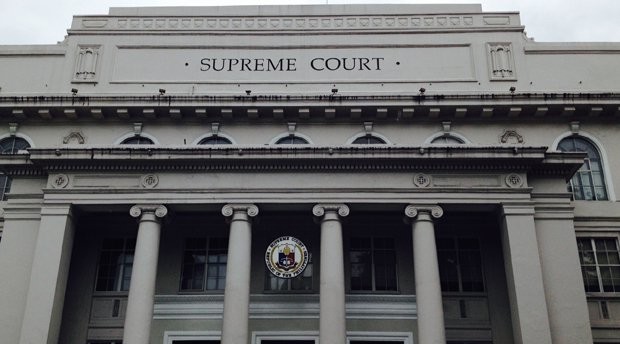The Supreme Court on Tuesday dismissed a petition which sought to compel the government to release the road user’s tax to implement a road-sharing policy for motorized and non-motorized vehicles.
“The demand for the release of the Road User’s Tax for the purpose of implementing the Road-Sharing principle cannot be justified as the amounts collected for the Road User’s Tax are for specific purposes and the implementation of the Road-Sharing principle is not among them,” the high court said.
The high court added that petitioners failed to establish that there was failure on the part of the government in performing their duties that led to a violation of their rights.
“The Court found that the allegations and supporting evidence fell short of showing an actual or threatened violation of petitioners’ constitutional right to a balanced and healthful ecology arising from an unlawful act or omission by, or any unlawful neglect on the part of, respondents that should warrant the issuance of the writs prayed for,” the high court said.
Among the petitioners were Victoria Segovia, Ruel Lago, Clariesse Jami Chan, representing the Carless People of the Philippines; Gabriel Anastacio represented by his mother Grace Anastacio: Dennis Orlando Sangalang represented by his mother May Alili Sangalang.
Maria Paulina Castañeda represented by her mother Atricia Ann Castañeda is said to represent the Children of the Philippines and Children of the Future; and Renato Pineda Jr., Aron Kerr Menguito, May Alili Sangalang and Glynda Bathan Baterina, representing Car-Owners “who would rather not have cars if good public transportation were safe, convenient, accessible, available, and reliable.”
Petitioners wanted the high court to issue a writ of kalikasan that would compel the government to set up and implement a road-sharing scheme for motorists, cyclists and pedestrians in a bid to reduce traffic and air pollution from motor vehicles.
They wanted the government to devote half of all roads to an “organized, collective, clean and affordable transportation system,” and the other half for covered sidewalks, all-weather bicycle lanes and urban gardens.
The petitioners pushed for the implementation of the scheme under Executive Order 774, which requires the government to create a system that “shall favor non-motorized locomotion and collective transportation systems (walking, bicycling and the man-powered mini-trains).”
They noted that Section 12(b) of the EO provides that public open spaces along sidewalks, portions of roads and parking lots “rendered irrelevant” by the shift to non-motorized and collective transport systems, shall be devoted to sustainable urban farming. RAM/rga
RELATED STORIES
